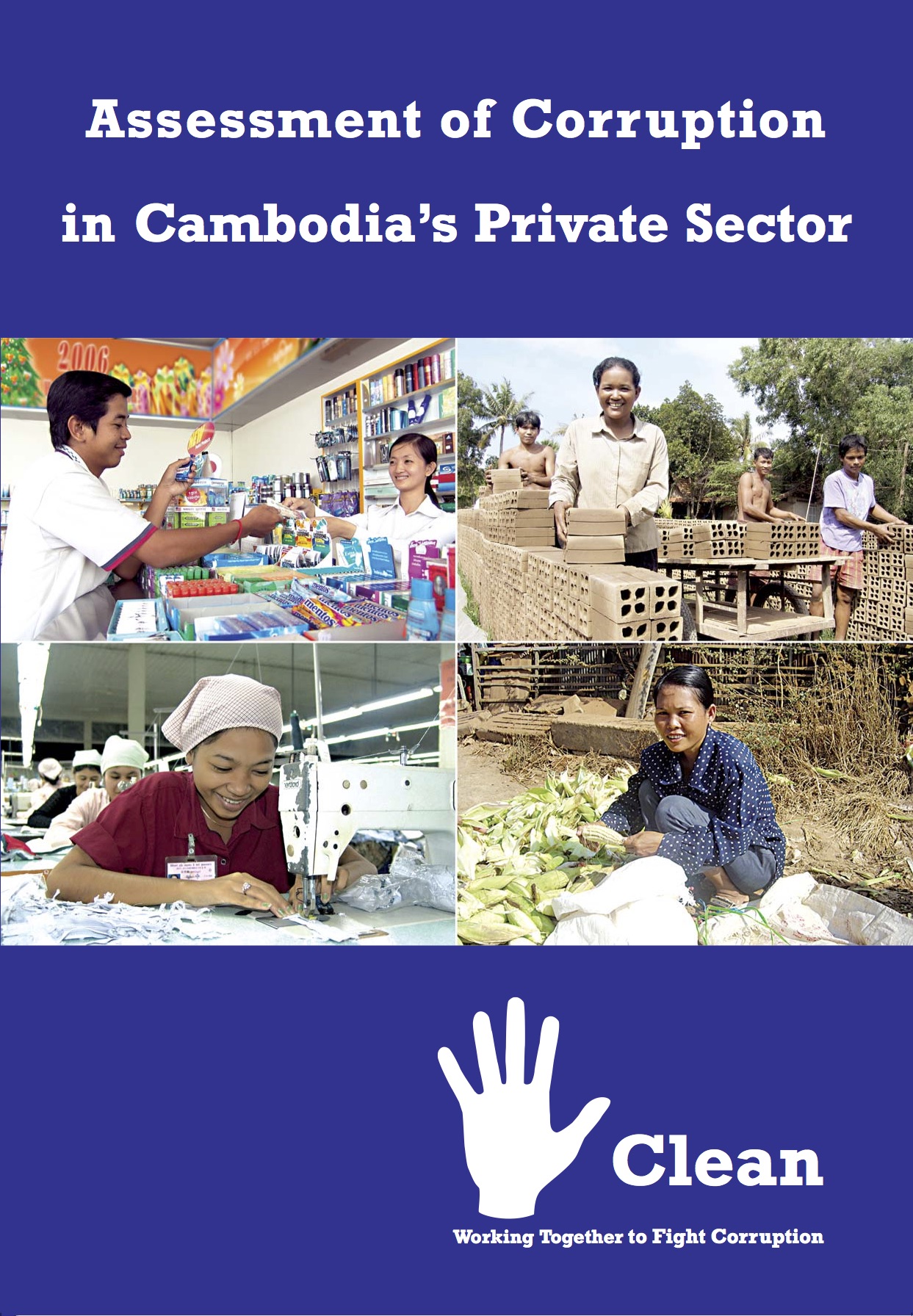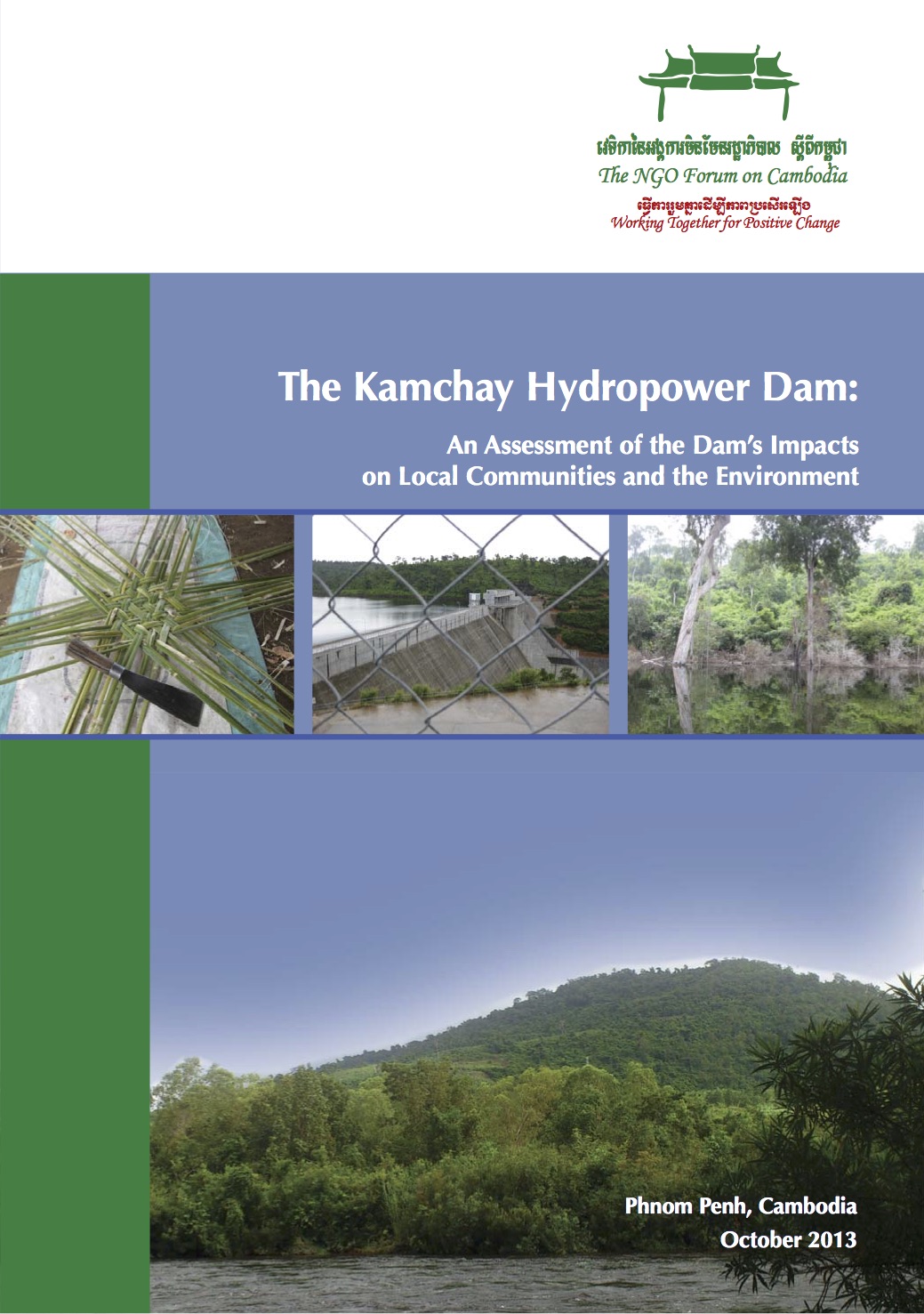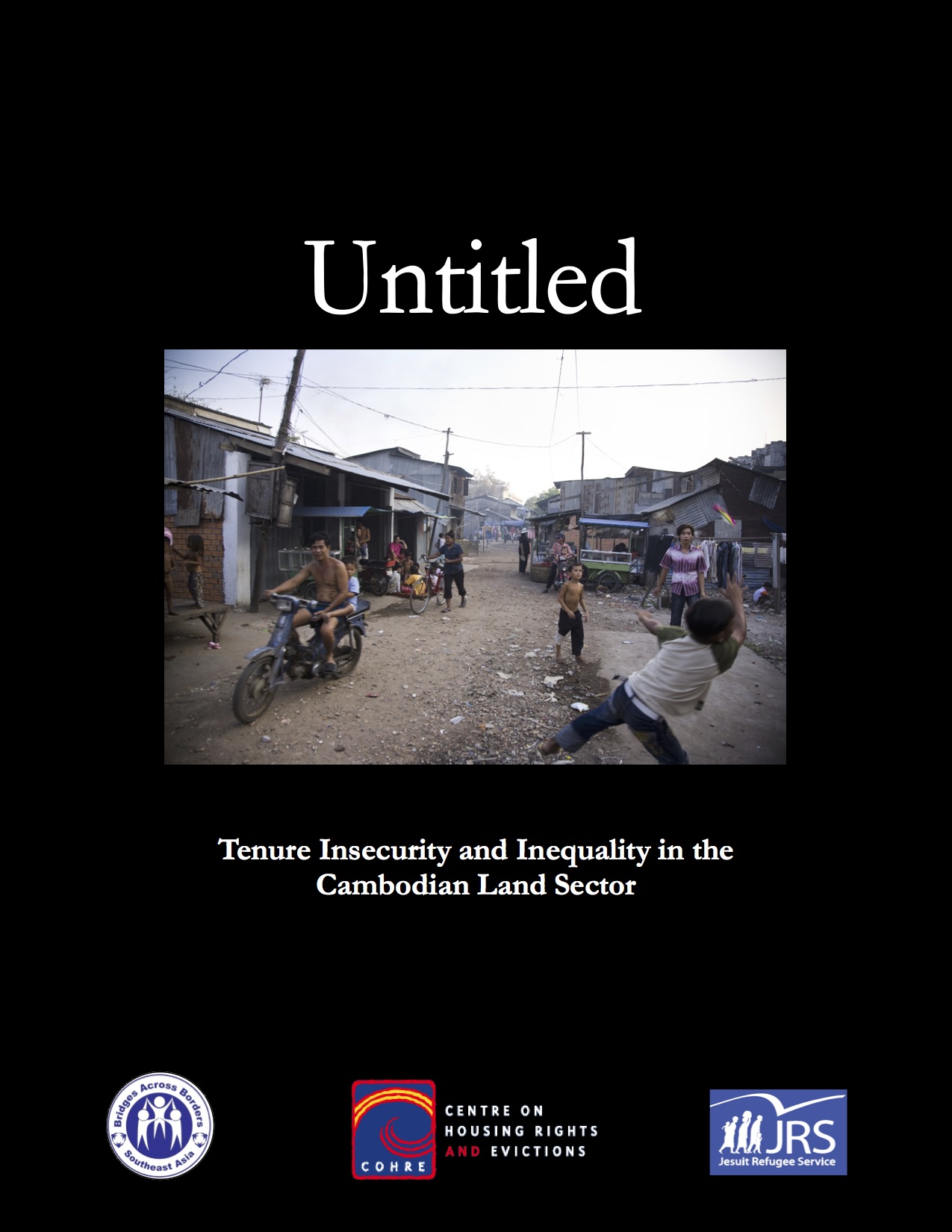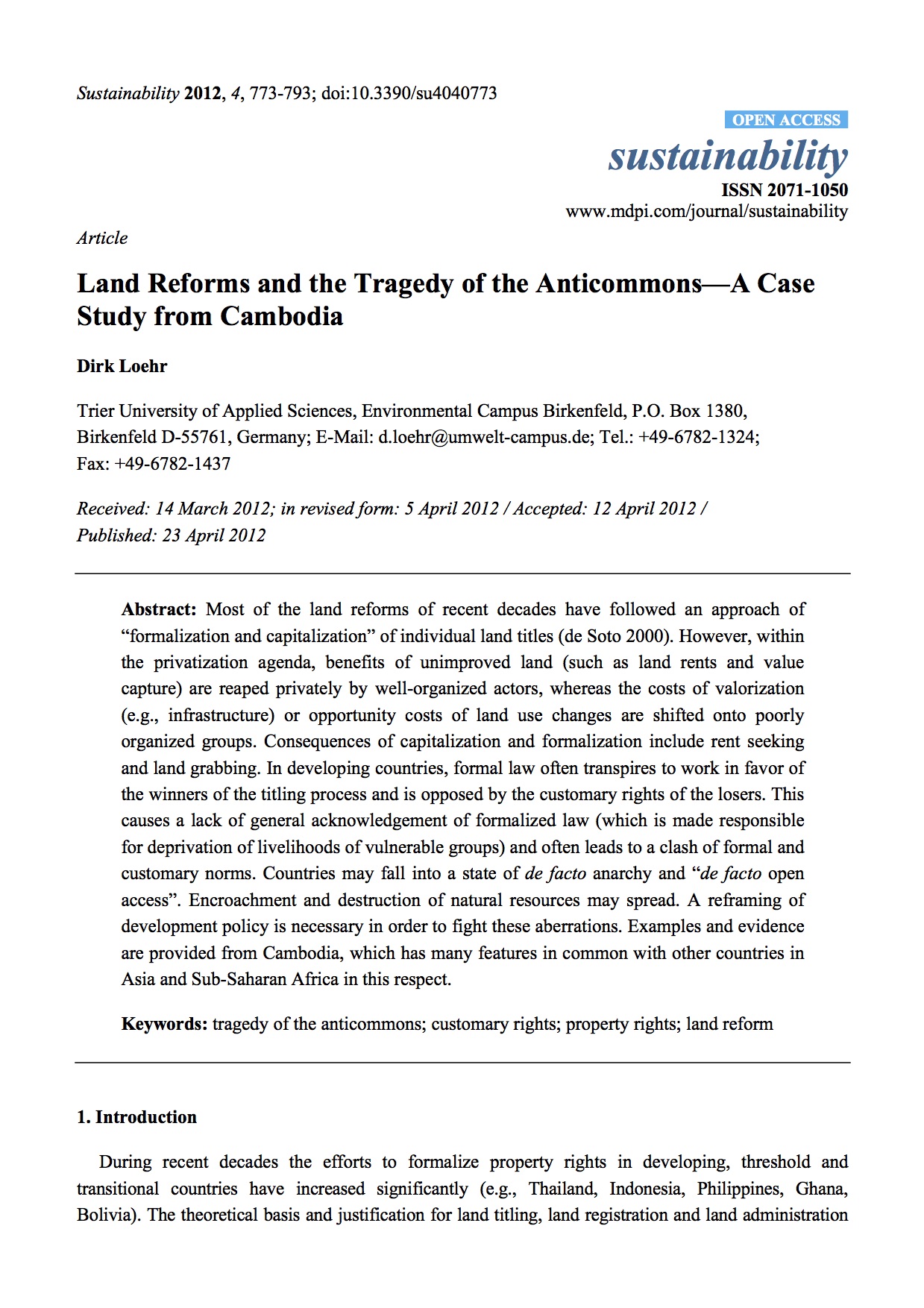Latest Entries
Assessment of Corruption in Cambodia’s Private Sector
Publication Year: 2006 / Sources: CleanThe study uses a wide range of methodologies that include: literature review, quantitative and qualitative surveys, modeling system to assess the impact of corruption on the private sector, and an advisory team. In April 2006, the study was conducted with a sample of about 1,200 enterprises in nine major municipalities and provinces of Cambodia. Furthermore, a total of 20 focus group discussions (FGDs) of micro, small and medium enterprises (MSMEs) as well as personal interviews with public officials were conducted. With the aim to raise the private sector’s awareness of corruption, this policy brief will shed light on the nature, causes and extent of corruption. It will also provide a set of practical recommendations on how to reduce corruption in the private sector.
The Kamchay Hydropower Dam
Publication Year: 2013 / Sources: The NGO Forum on CambodiaBeing the first large-scale hydropower project in Cambodia the Kamchay Dam should be considered an important test case which can provide valuable insight into the appropriateness of the regulatory framework and the associated implementation procedures. This study focuses on some of the post-project social and environmental impacts associated with the dam’s construction. The implementation of mitigation measures stated in the Environmental and Social Impact Assessment (ESIA) is examined and the impacts experienced by local communities are researched and analyzed.
Untitled
Publication Year: 2009 / Sources: Bridges Across Borders Southeast Asia, Centre on Housing Rights and Evictions, Jesuit Refugee ServiceEight years have passed since the enactment of the 2001 Land Law, which established a framework for the recognition of land and property rights throughout Cambodia. In 2002 the multi-donor supported Land Management and Administration Project (LMAP) was initiated in order to implement key parts of the law and further develop the legal framework. LMAP has since been the key focus for the development of the Cambodian land sector. The project is due to end in December 2009 and continued donor engagement is currently under review. In light of the current land situation in Cambodia, this report aims to examine the original LMAP documentation and reflect on the performance of the project and the challenges it has faced within the wider land sector context. It gives recommendations to all concerned actors as to how future projects in Cambodia could work more effectively to improve the tenure security of vulnerable and socially marginalized communities.
Land Reforms and the Tragedy of the Anticommons—A Case Study from Cambodia
Publication Year: 2012 / Sources: Sustainability Vol. 4Consequences of capitalization and formalization include rent seeking and land grabbing. In developing countries, formal law often transpires to work in favor of the winners of the titling process and is opposed by the customary rights of the losers. This causes a lack of general acknowledgement of formalized law (which is made responsible for deprivation of livelihoods of vulnerable groups) and often leads to a clash of formal and customary norms. Countries may fall into a state of de facto anarchy and “de facto open access”. Encroachment and destruction of natural resources may spread. A reframing of development policy is necessary in order to fight these aberrations. Examples and evidence are provided from Cambodia, which has many features in common with other countries in Asia and Sub-Saharan Africa in this respect.
Sugar Rush
Publication Year: 2013 / Sources: OxfamThis paper sets out how one crop – sugar – has been driving large- scale land acquisitions and land conflicts at the expense of small-scale food producers and their families. At least 4m hectares of land have been acquired for sugar production in 100 large-scale land deals since 2000, although given the lack of transparency around such deals, the area is likely to be much greater. In some cases, these acquisitions have been linked to human rights violations, loss of livelihoods, and hunger for small-scale food producers and their families. Major food and beverage companies rarely own land, but they depend on it for the crops they buy, including sugar. These companies must urgently recognize this problem, and take steps to ensure that land rights violations and conflicts are not part of their supply chains.





